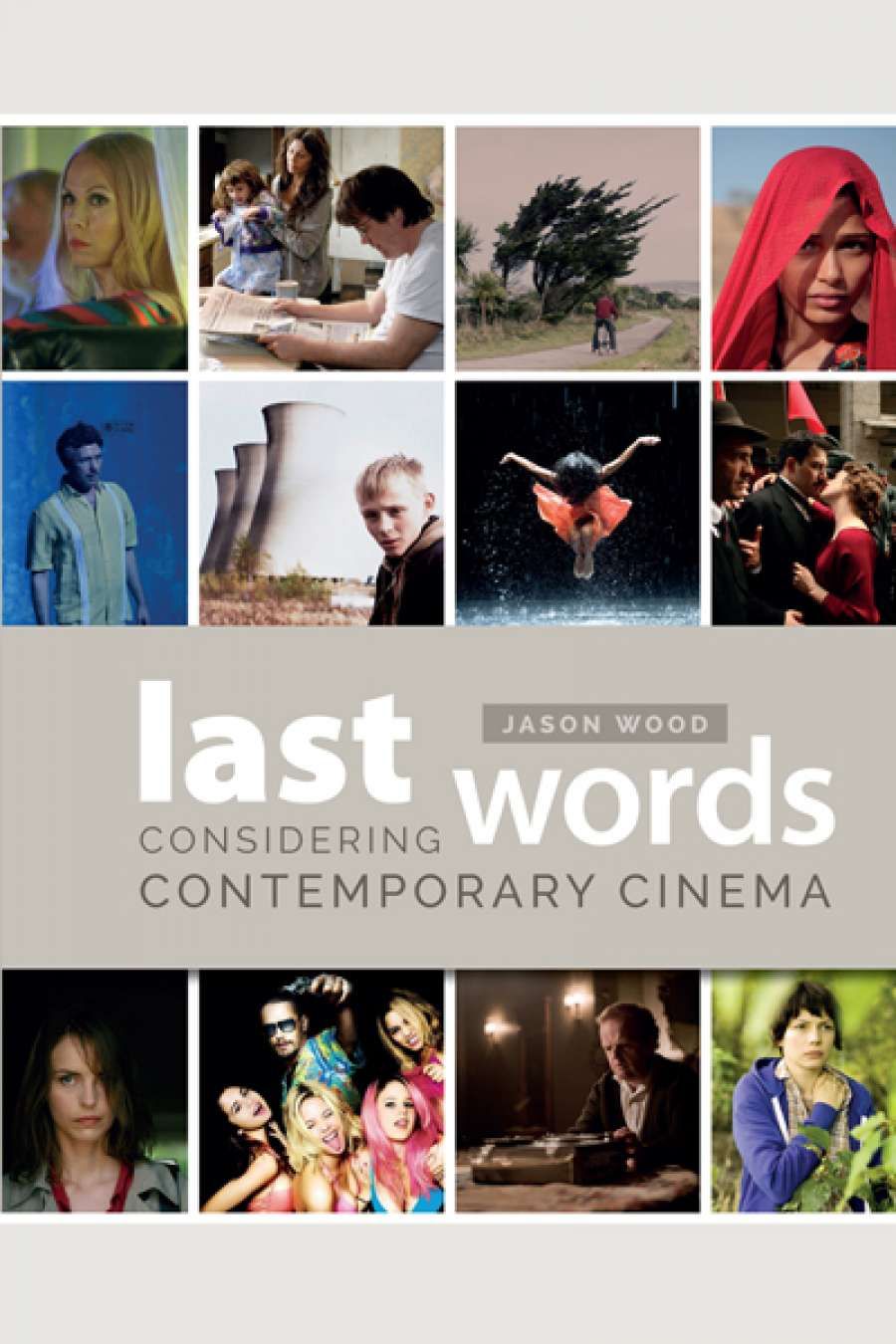
- Free Article: No
- Contents Category: Film
- Custom Article Title: Jake Wilson reviews 'Last Words' by Jason Wood
- Book 1 Title: Last Words: Considering Contemporary Cinema
- Book 1 Biblio: Wallflower Press (Footprint), $44.95 pb, 162 pp, 9780231171977
As an occasional journalist myself, I approached this book – a grab-bag of film-maker interviews spanning the last fifteen years – with professional interest. Interviewing, after all, is a skill in its own right, especially when you are dealing with veterans of the game. Coaxing your subjects onto unfamiliar ground requires patience and a certain cunning. Mostly, what you are trying to do is avoid exchanges like the following, from Wood’s interview with the Danish director Nicolas Winding Refn on his film Drive (2011):
JW: In terms of a study of loneliness and solitude Walter Hill’s The Driver [1978], Melville’s Le Samourai [1967], and Scorsese’s Taxi Driver [1976] would seem to be antecedents. Were these films that you went back and looked at?
NWR: I certainly watched a lot of car chase movies.
That, in fairness, is a low point. Wood, at his best, is a capable interviewer, or at least a blandly adequate one; sometimes the blandness is an advantage, letting him slip into the background while his subjects hold forth. The strongest chapters of Last Words are in this mode: Peter Strickland on 1970s giallo scores and how they inspired his pastiche Berberian Sound Studio (2012), or Tilda Swinton – the one non-director on the roster – on the troubled mother she played in Lynne Ramsay’s We Need to Talk About Kevin (2011).
But a few chapters’ worth of interesting material is not enough for a cohesive book. As a snapshot of current world cinema, Last Words is plainly inadequate: roughly half the film-makers here are British, the rest mostly European, with none from Africa, Asia, or the Middle East. Nor is there much sense of an overall narrative or polemical argument. Wood’s undiscriminating taste encompasses everything from the avant-garde films of Ben Rivers to the stolid Australian ‘issues’ drama Jindabyne (2006); though he does tend to fixate on landscape as if escaping the city were an aesthetic virtue in itself.
Wood’s tolerance only gives way when it comes to Hollywood: here he is reflexively hostile, professing horror that the likes of Joss Whedon’s The Avengers (2012) or Judd Apatow’s This Is 40 (2012) should be accorded the honour of a lead review in the Guardian (described as ‘the nation’s favoured critical barometer’). This stance amounts to little more than snobbery – there is no obvious reason why Whedon and Apatow should automatically be considered less significant than, say, Jindabyne’s director Ray Lawrence – and is in any case vitiated by the inclusion of an early interview with Christopher Nolan, whose Batman Begins (2005) is fulsomely praised as heralding a new era in superhero cinema.
‘Wood’s tolerance only gives way when it comes to Hollywood: here he is reflexively hostile, professing horror that the likes of Joss Whedon’s The Avengers (2012) or Judd Apatow’s This Is 40 (2012) should be accorded the honour of a lead review in the Guardian’
Wood boasts that the interviews are presented ‘with anything other than comments relating to the work itself judiciously removed’. This stringent editing may explain why the transcripts give so little sense of the back-and-forth of conversation: Wood is rarely shown asking follow-up questions, or reacting strongly to what his subjects have to say. It is frustrating, too, that we learn nothing of the circumstances of particular interviews: the introduction indicates many were conducted as post-screening discussions, presumably under the Curzon banner, which is not quite the same as actual journalism.
Still, it is a blessing that Last Words consists mostly of transcribed speech rather than writing, as Wood is, frankly, a terrible writer. His chapter introductions resemble the stilted blurbs in film festival catalogues: ‘This beautifully judged and deftly directed coming-of-age tale confirms Eimbcke as one of the brightest voices in Mexican cinema’s current crop of emerging young talents.’ Sentences are clumsily knitted together, with modifiers dangling like loose threads – and there are outright howlers, as when Michel Gondry’s The We and the I (2012) is labelled a documentary, or the star of Savage Grace (2007) is identified as ‘Julian Moore’.
Most disastrous of all are the attempts at humour: when Wood describes Last Words as ‘probably the least anticipated film publication ever’, this registers less as charming self-deprecation than as worrying neurosis. That said, if he reapplies the description to his next book, from my perspective he might not be far wrong.


Comments powered by CComment